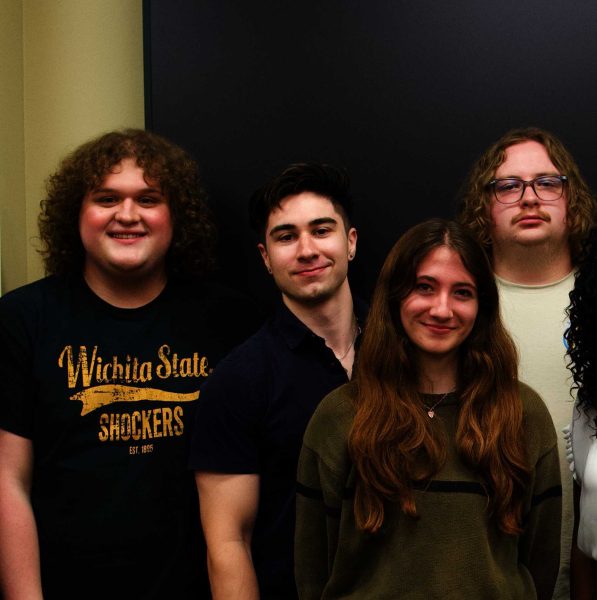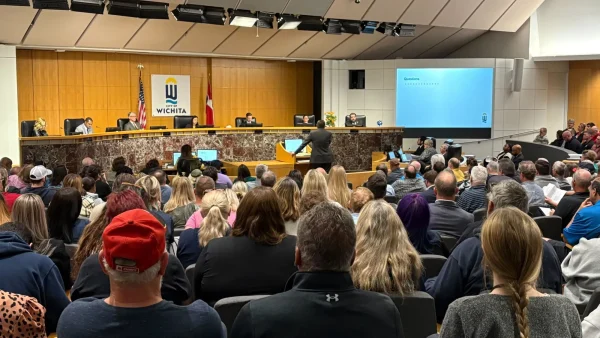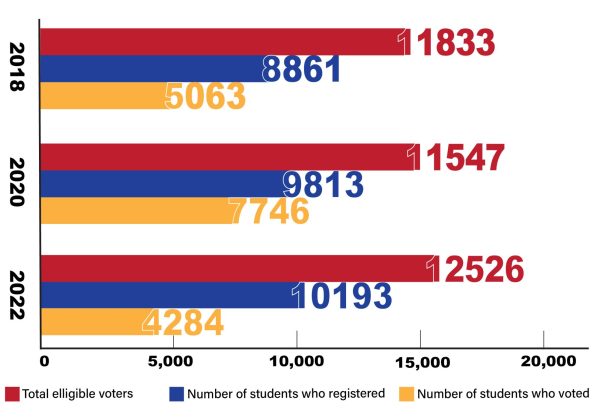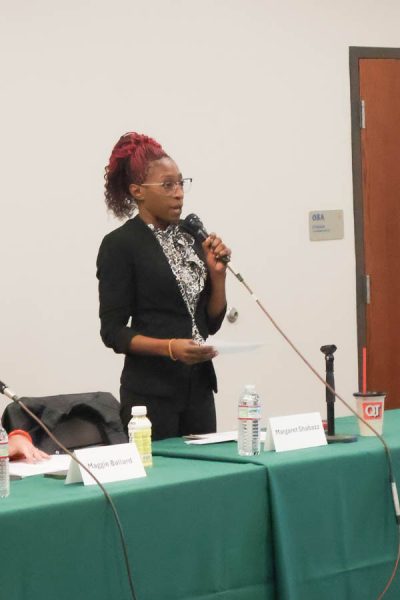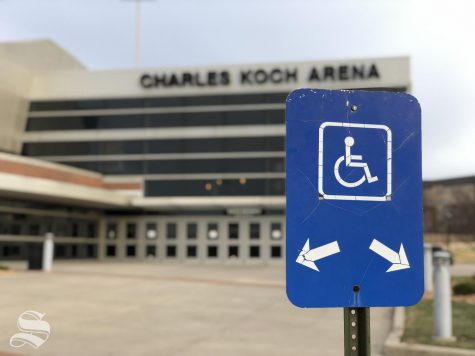WSU to lead network research
The day is coming when the inanimate objects of our daily lives can talk to us. Empty parking spaces could tell us where they are, trashcans could tell us when they’re full, and cars could warn each other about upcoming accidents.
For Wichita State, that day when all this begins is only two months away.
The ultimate goal is creating The Center for the Internet of Everything- an idea that’s been two years in the making. It will virtually connect people, places and devices in the name of efficiency, competition and sustainability.
This March, the Advanced Networking Research Institute (ANRI) will be gardening around campus. They’ll be planting sensors in the soil that will communicate directly with the irrigation system to determine how much water they need. The measure has major sustainability impacts for the campus. It won’t go unnoticed in an increasingly water-scarce world.
The project’s development has brought students of all academic backgrounds together. With light guidance from professors and researchers, English and Engineering majors alike work often for 20 hours each week at ANRI.
“You don’t see such a diverse community on this campus,” Amarnath Jasti, a lead researcher at Cisco Technical Research Center, said.
The sensors only take a few weeks to develop and test, but longer for polished fabrication and security features.
“All I have to do is encourage them (students), support them, and watch them create,” ANRI director Ravi Pendse said.
Pendse said he believes WSU could be at the forefront of network research. WSU already has a leading graduate computer program. This spring, students will present the water sensor project at a conference in Topeka, as they have at past conferences.
“We wanted to be at the forefront of that conversation,” Pendse said. “We wanted to lead.”
The project is being funded through federal and private grants, but isn’t costing the university anything. NetApp, a data storage company, and Cisco Technical Research Center (CTRC), whom have partnered with WSU in the past, are funding the idea.
The water sensor project is only the first step. Pendse envisions linking technology with mobile devices to facilitate the daily actions of our lives. For example, one could link the signal from a cellular device to their banking information to protect identity theft. In case of a stolen credit card, a cell phone company could see the mismatch of location and report the possible theft.
One obvious result of The Center would be thinning the bottleneck that is WSU student parking. A possible implementation would be sensors in every parking space on campus. The goal is for anyone to be able to download an app on a phone or in a car that would locate the empty spaces (though that doesn’t stop anyone from stealing your spot).
While some may balk at the idea of sensor chips in our soil and parking lots, Pendse welcomes the discussion on privacy and security. For many students, these advancements like something out of the Jetsons. But Jasti says it’s just the next logical step in the technology evolution step in making life more convenient.
“As we get this group (The Center) together we will have the opportunity to lead and show the state, country, and the rest of the world that there are some very special things we can do with it,” Pendse said.
Five years from now, campus life could be in a new technological age. But until then, WSU computer researchers will continue to take things one step at a time.



